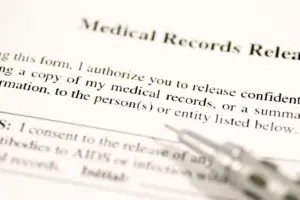
Driving under the influence (DUI) is a serious offense that may cause serious legal, economic, and relationship issues. Following a DUI, it is not uncommon for individuals to seek therapy to work on the issues that led them to drive while under the influence.
If you or a loved one has been in this position, you may wonder whether it is normal for a therapist to request authorization to release confidential information after a DUI. Continue reading as we explore how confidentiality works in a therapy setting.
Reasons a Therapist Might Request that You Sign an Authorization to Release Confidential Information
Following a DUI conviction or charge, a therapist could request that their client allows them to release information that they have shared in confidence. There are a number of reasons this could happen. Several are listed below:
- Legally Obligations
- Reports on treatment progress
- Insurance requirements
In the state of California, therapists have a legal obligation to report drug and alcohol-related incidents that could affect the patient’s ability to operate a motor vehicle safely. These reports must be submitted to the California Department of Motor Vehicles (DMV).
According to California law, licensed therapists may reveal information connected to a client’s DUI charge or conviction in specific cases. An example of this is if the client is attending therapy because they were ordered to by the court, the therapist may be required to issue progress reports. If the client’s insurance is funding the therapy, the therapist could be required to turn over certain information about their client’s treatment to the insurance company to aid in the claims process.
Confidentiality in Therapy
One of the reasons that people are comfortable opening up and being honest while in therapy is because of the fundamental principle of confidentiality and the freedom it allows them to experience when communicating. The therapist is mandated to keep any information shared with them by their client private unless they receive consent from their client.
To establish trust, a client must feel that what they are saying, the thoughts they are sharing, and the feelings and behaviors they are discussing are confidential. The reason therapy works is because sharing can be done safely.
Breaking Confidentiality
When you are attending therapy, confidentiality is of the utmost importance. However, there are times when an exception is made, and confidentiality may be broken. These exceptions are listed below:
- If a therapist believes the patient is in danger of harming themself or others, they are legally and ethically obligated to break confidentiality to prevent harm.
- If a therapist suspects child abuse or neglect in any form, the law requires that they report it to the appropriate authorities.
- Therapists must disclose confidential information if they are ordered to do so by the court.
State and Federal Laws Governing Confidentiality
California therapists are required to follow both state and federal laws regarding patient confidentiality and privacy with their therapy clients. The federal law that lays out the standards for the protection of a person’s medical records and personal information regarding their health is the Health Insurance Portability and Accountability Act (HIPAA).
Therapists who are covered by HIPAA laws are required to comply with those federal regulations concerning their patients. This means they require written consent from their clients to legally disclose any protected health information to other parties or entities.
Information that Can Be Disclosed
When a client signs an authorization form allowing their confidential information to be released following a DUI, the therapist is allowed to disclose the information listed below:
- DUI charges and convictions
- Types of treatments and the dates they occurred
- How the therapy is progressing
- That the client is complying with the treatment schedule and recommendations
- Relevant information concerning the DUI charge or the conviction
The therapist can only give information pertaining to the DUI. They are limited in what they are allowed to share and are only allowed to disclose the minimum necessary.
Must You Sign the Release if Your Therapist Requests Your Signature?
You are not required to sign a confidential information release form just because your therapist has requested that you do so. When you are in therapy, the choice is yours about the decision to disclose private information. Though, it is important to note that the therapist’s ability to disclose information about your treatment with your insurance company or other professionals may be limited because of your refusal to sign.
Consider approaching your therapist with your honest concerns about signing the disclosure release agreement. You may want to know the following:
- Why are they requesting the release?
- What information do they plan to disclose?
- Who are they planning to share the information with?
- How will the otherwise confidential information be used?
Having answers to those questions will aid you in making an informed decision about whether or not to sign the confidential information release agreement.
When a Therapist Is Required to Disclose Information
While there are ethical and legal reasons that a therapist may need to disclose information without obtaining permission, like in the case of suspected child abuse or neglect or when they are required to comply with a court order, there are other times that the protected communication between you and your therapist remains protected.
If your therapist has approached you about signing a confidential information disclosure form, they should explain their reasons. This is your chance to voice your concerns and have your questions answered before signing on the dotted line.
Speak with a Los Angeles DUI Attorney if You Have Concerns
You may feel hesitant to sign an agreement that allows your therapist to share confidential information that you have shared with them. If you are concerned about how that information will be used or if it is in your best interest to share it, reach out to a Los Angeles DUI attorney for guidance. We will explore any concerns you may have and advise you appropriately concerning how to move forward.
Our client’s best interest is at the heart of what we do. If you have questions or concerns, reach out today so that we can help you navigate the complicated legal process of therapist-client confidentiality.






